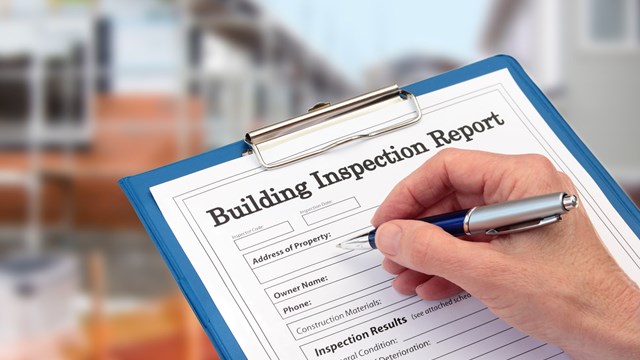Running a condo or co-op association is a lot like owning your own home, but on a much larger scale. Like with any home, needs for various repairs come up from time to time.
But unlike an individual homeowner, development managers can't just go down to Home Depot and buy what's needed to do the job themselves. Nor can they call a handy relative to come help them fix it. The responsibility of serving hundreds of residents means a job has to be done right, and in as timely a fashion as possible. That's where a capital reserve study comes in.
"[Reserve studies] are important because they assure the association that when it comes time to replace capital assets, which make up the common elements of the development, they will have the money to do it," says Mitchell Frumkin of Kipcon, an engineering firm in North Brunswick.
Capital Reserve Studies
A capital reserve study determines an estimate for the amount of money an association needs to have saved to conduct repairs of common areas.
"An engineer will assess the common elements of the community and put together a funding plan so that they can have adequate funds to replace items such as roofs, roadways, siding, lighting, things like that," is how Daniel Rush of Flannery Webb & Hansen, an engineering firm in Toms River describes a capital reserve study. "What the reserve funds do is put money in the bank so that when the things are due to be replaced…they have the money."
Rush, an engineer, is a reserve specialist, meaning he has a certification from the Community Associations Institute (CAI). While not legally required to conduct a reserve study, the title of "reserve specialist," or RS, is a national recognition that ensures associations that the person conducting the study is certified.
"It's given to people who have met certain qualifications, have adequate experience and have done a certain amount of reserve budgets for different kinds of communities," Rush says. "It's a designation to assist associations in finding someone who's qualified, but it's not like a professional engineer's license."
To gain the RS certification, specialists are required to have a bachelor's degree in construction management, architecture, or engineering and four years of prior related experience in a field serving community associations—or equivalent experience. Other qualifications are a trade school diploma and two years of experience or another college bachelor's degree plus three years of working under the direction of an active reserve specialist. RS designees must also have performed at least 50 reserve studies in the past three years, and must renew their certification every three years with CAI.
So What's Covered?
A capital reserve study does not take into account every aspect of a development. Areas that receive regular care—landscaping, cleaning gutters and so forth—typically aren't included in a study. Neither are aspects where regular replacement isn't anticipated, such as building structure. A general guide is that any area that needs maintenance or updating every 20 to 30 years falls under the category of capital projects. These include roofing, pavement, siding and recreation items such as pools.
"Capital projects typically include things that are in excess of some threshold, such as $10,000 in replacement costs," says John P. Poehlmann, a reserve specialist with Reserve Advisors, Inc. a Milwaukee firm that does capital reserve studies in more than 40 states. "They have to be items that have a predictable life—things that last a long, long time like sewers and electrical systems underground typically are not included because their life is either extremely long—over 30 years—or the life is unpredictable."
Poehlmann says that different complexes are treated differently. For example, in a mid-rise or high-rise building, mechanical systems, heating and air conditioning systems, elevators, hallway carpet and lobbies can be included in the study.
"In condominiums, it's typical that all items that are not within the condominium unit itself [are part of the study]," Poehlmann says. "In cooperatives…sometimes it can include things inside the units, things like cabinetry, plumbing fixtures, sinks, bathtubs. It depends on legal documents of the particular co-op."
"Every community is different," says Rush. "Even one condominium development that's down the street from another one. They're all different, and have different needs, different personalities that make up their association…. We tend to look at each one a little differently and not mass-produce reports."
A capital reserve study does not entail getting repairs done directly, nor does it involve arrangements for repairs to get done. But after one, an association should know how much money it needs to have in reserve to keep running smoothly and have an idea of what repairs may need to be done in the future.
"We make recommendations as to what a budget needs to be," Rush says. "How much money a unit owner would need to contribute each month in order to keep their reserves healthy and funded adequately. We may also make recommendations for maintenance, what can be done to make things last longer."
"It's a two-part analysis," Poehlmann says. "One is the cost and timing of capital projects. The other part of the study is a financial analysis that determines how much the shareholders, or condominium owners, should contribute on an annual basis into a reserve fund so that they money is there when it's needed."
Various factors that can be taken into consideration include where a community is located, age, and how aggressive a community is in its maintenance according to Rush.
"You don't go in with blinders on," Rush says. "You try to help the community however you can. I'm also a professional engineer in this state so I do look at other [factors] and make other recommendations as well."
Being Prepared
An association needs to have certain information ready for a reserve specialist before the study can be performed.
"There's a whole list of things," Rush says. "Engineering and architectural plans for the community. The existing budget, existing contributions. A history and record of what kind of improvements have been made either since the last study or since the development was constructed."
It is up to a development to arrange to get a study done. Rush says New Jersey law stipulates that associations need to have adequate reserves, but that it doesn't require capital reserve studies to be done on any regular basis. He advises that certain guidelines be followed as to when a capital reserve study should be done: New developments should get one done when they first open. After that, studies should be done every three to five years. Older communities may want to have a study done every year or every other year.
"The whole idea behind a reserve study is simply this: to identify the appropriate amount of money that needs to be collected through the homeowners over a 20- to 30-year period in order to repair and replace those components when they need to," says Poehlmann. "The whole idea is avoid special assessments or bank loans. And not to over- or under-fund the reserve account. If you over-fund it, the people who live there today are paying too much in and they'll never get it back. If you under-fund, you're going to penalize people in the future and see all these capital projects that they don't have money to conduct."
Keith Loria is a freelance writer living in New Jersey.







2 Comments
Leave a Comment